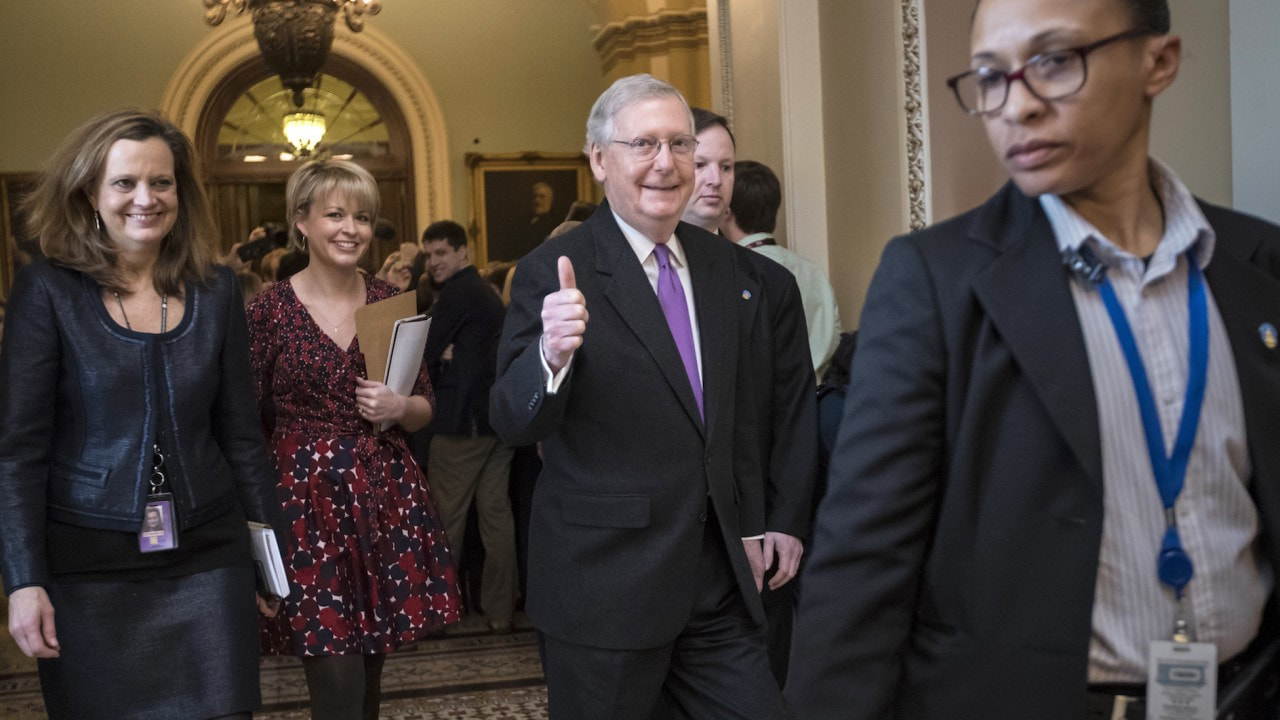|
“ I think the blame game is ridiculous on both sides. Republicans and Democrats … But when both sides do it, I think the American people see through it,” Sen. Rand Paul (R-Ky.).(This opinion — expressed by Sen. Paul on CNN and quoted by The Hill — suggests that blame isn’t helpful to lawmakers looking for a solution to the government shutdown. But in the articles we analyzed (published on the second day of the shutdown), it stands alone as the only voice questioning the validity of blame. Instead, outlets such as Fox News, The Hill and AP focused on the so-called “blame game,” hyping it with sensational language, focusing on lawmakers faulting each other, and leaving out specifics about the issues that were still being negotiated. As a result, readers may get the impression that lawmakers were petty, incompetent, and focused on political gain instead of trying to resolve a matter affecting a lot of Americans. Although it may very well be the case that some of their behavior reflects pettiness, not everything happening in the Senate is due to this, and the outlets give little to no information about the issues being discussed and what it would take to reach an agreement.
In contrast, BBC’s article contains the least sensational language and the most specific information about areas of agreement and disagreement. Let’s explore how three of the outlets feed into the blame. Sensationalizing the fightSome lawmakers have made sensational or defamatory comments, and media outlets add to the drama with sensational and subjective descriptions of their own. Here are some examples (with spin words bolded): “ Tempers were short and theatrics high.” ( Fox News) “Senate leaders offered no obvious solution to reopening the government and engaged in unrelenting finger-pointing…” ( AP) “Senate Majority Leader Mitch McConnell (R-Ky.) and Senate Minority Leader Charles Schumer (D-N.Y.) exchanged barbs on the floor…” ( The Hill) “As lawmakers bickered in the Capitol…” (AP, Fox News)Given lawmakers’ comments, people might regard the negotiations as a fight, and lawmakers do seem to be blaming each other. Still, it isn’t neutral or objective to use the above descriptions — which include the outlets’ own subjective commentary, much like an editorial piece would. Focus on finding faultAP, Fox News and The Hill all include multiple quotes from lawmakers that blame the other party for the shutdown, often using disparaging language. For instance, The Hill quotes House Speaker Paul Ryan (R-Wis.) saying Democrats “blew up the negotiations that were already underway,” and AP cites Senate Minority Leader Chuck (D-N.Y.) saying the shutdown is “a direct result of a president who has proven unwilling to compromise and is thus unable to govern.” It’s a fact that these people said these things, and it might be important for the public to know, but citing these sorts of quotes alone is not enough to capture what’s going on. As mentioned above, some lawmakers said the “blame” wasn’t productive and were cooperating and negotiating in an attempt to reach a deal (which they did on Monday.) The news we looked at largely ignored this, and instead focused on fighting and blaming. What’s missing?Most of the outlets are short on specifics about the issues being negotiated and the areas of contention. Take the Fox News article, for example. It has 26 paragraphs and 24 of them don’t have any information on what items are being negotiated. A few lines in, the outlet says, “Democrats refused to provide the votes until they strike a deal with President Trump to protect from deportation illegal immigrants who were brought to the United States as young children by their parents.” It isn’t until the final paragraph that the reporter includes more information on the issue (DACA). That’s 24 paragraphs of just fighting and blaming. In contrast, the BBC article contains the most prominent and specific information about the negotiations and areas of disagreement. Before including any quotes from politicians blaming each other, BBC outlines several areas of negotiations for the spending bill. (These include DACA, funding for a border wall, increased military spending, and an extension of the Children’s Health Insurance Program.) The news was that there was a government shutdown. Wouldn’t it be more informative to know exactly why, rather than just focusing on the “bickering”? Comments are closed.
|
Jens Erik GouldJens is a political, business and entertainment writer and editor who has reported from a dozen countries for media outlets including The New York Times, National Public Radio and Bloomberg News Archives
February 2018
Categories
All
|

 RSS Feed
RSS Feed